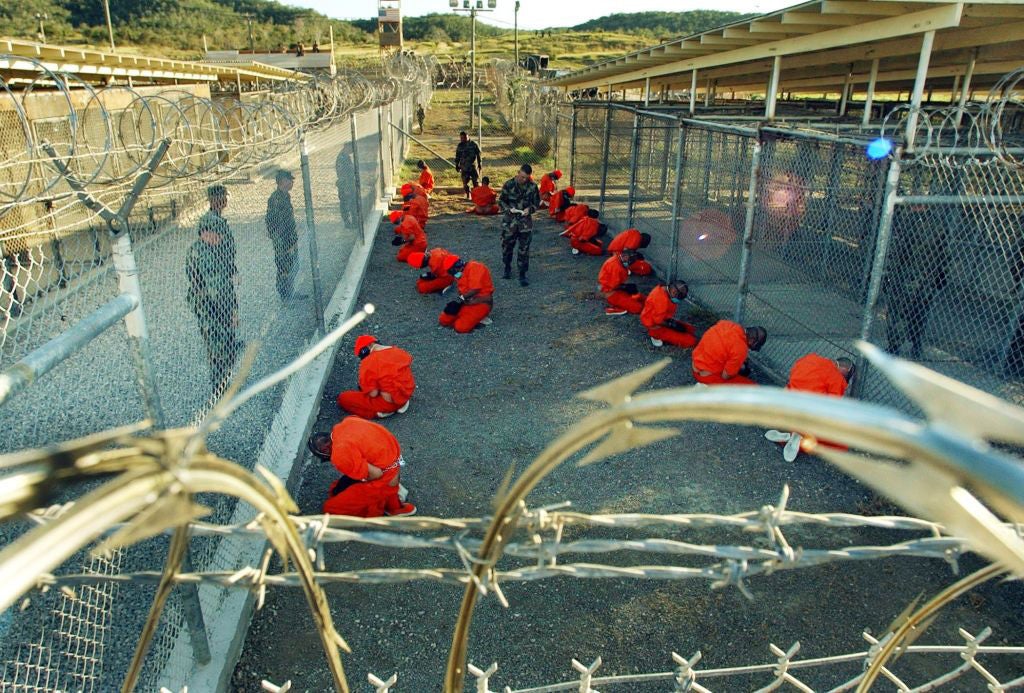End the 'War on Terror'
President Joe Biden was determined to end U.S.involvement in the Afghan "forever war" by the twentieth anniversary of the Sept.11, 2001, attacks.

s. He should also use the anniversary to announce a definitive end to the forever "global war on terror." That is the best way to curtail the enormous damage that this expansive and dangerous concept has done. This war, devised by the George W. Bush administration, is not limited to a definable enemy or a particular battlefield. It is global in nature, amorphous in focus and guides a broad range of U.S. security efforts. Although the Obama administration abandoned the terminology, the effort continued—first as a war against Al-Qaeda and associated forces and then as a response to the threat of terrorism that had become so normalized that it no longer carried its own name.
The consequences have been disastrous for efforts to constrain security forces under international human rights and humanitarian law.
The attendant abuses—a boon for terrorist recruiters—have arguably promoted as much terrorism as the effort has stopped. Some of this lawlessness was the product of the Bush administration's determination to rip up the rule book.
The notoriously strained legal memos that effectively justified torture did not stand up to honest scrutiny, and President Barack Obama formally repudiated them. But Obama's infamous decision to look forward, not back, precluded prosecuting the officials behind these blatant crimes. That effectively left torture, despite its clear illegality, as a policy option, enabling President Donald Trump to boast that he would revive the practice. Although, as far as is known, he never carried out the threat. Other Bush-era practices such as the abuse of material-witness detention and the targeting of American Muslims in FBI sting operations have also seemingly ended but never been repudiated. Certain aspects of the global war on terror live on more actively—most notably, the decision to broadly treat countering terrorism as a "war," or military effort, rather than a law enforcement matter.
The two types of endeavors are subject to different sets of rules, most notably with respect to detention and lethal force.
The U.S. government's decision to see nearly all threats through a war paradigm resulted in indefinite detention without charge, the targeted killing of suspects who could have been arrested and an overall mindset that saw every potential harm to the United States or Americans as something to be addressed militarily. Instead of working with allies to arrest those abroad who had committed criminal offenses, the U.S. government sought to kill them. In places like Yemen, for example, people believed to pose a terrorist threat to the United States were attacked by aerial drones or air strikes on the grounds that they were enemy combatants.
These attacks are often carried out on the flimsiest evidence, regardless of whether those targeted posed an imminent threat to life or were actually engaged in an armed conflict with the United States. Meanwhile, about 780 men have been held at Guantanamo Bay over the years, the vast majority without ever having been charged with a crime. Twenty years since the Sept. 11 attacks, the U.S. government continues to detain 39 men there, on the theory that as security threats they can be held without trial in a forever war. Ending the global war on terror would still allow the U.S. government to carry out lethal attacks in response to a terrorist threat, but only in the midst of a genuine armed conflict or as a last resort to stop an imminent lethal threat. Although the U.S. government's account of the details have been challenged and require investigation, the U.S. attack on a bomb-filled car said to be bound for Kabul's airport might have been lawful under either framework if the U.S. account is correct, but not the retaliatory "stop at nothing" attacks that Biden administration has threatened. As for the Guantanamo detainees, they should be fairly tried before a properly constituted court—not the sham military commissions that have dragged on for years—or safely released, which should have happened long ago. That would provide justice for both the people charged and the families of the 9/11 victims who have waited decades for a trial. Ending the global war on terrorism could also reduce other governments' ability to justify blatant human rights abuse in the name of fighting terrorism.
The Chinese government, for example, years after isolated violent incidents in Xinjiang, has detained 1 million Uyghur and other Turkic Muslims as part of a campaign to force them to abandon their religion, culture and language—acts that amount to crimes against humanity. Turkey's President Recep Tayyip Erdogan responded to a 2016 coup attempt allegedly led by loyalists to exiled cleric Fethullah Gülen by detaining and convicting as members of a terrorist organization tens of thousands of people who were supportive of Gülen's movement or taught in his schools but had no proven connection to the coup or any violence. Egypt's President Abdel Fattah al-Sissi has detained tens of thousands of people associated with the Muslim Brotherhood, ostensibly to fight terrorism, when the group's primary "offense" was to win Egypt's last fair election in 2012. Governments have a responsibility to protect the public from the likes of the Islamic State, but outside situations of active armed conflict, law-enforcement rules should suffice. To stop the many abuses associated with the global war on terror, Biden should end it. That would send the message that the appropriate response to terrorism is not more lawlessness and abuse but a response within the confines of international human rights and humanitarian law.
Read the full article at the original website
References:
